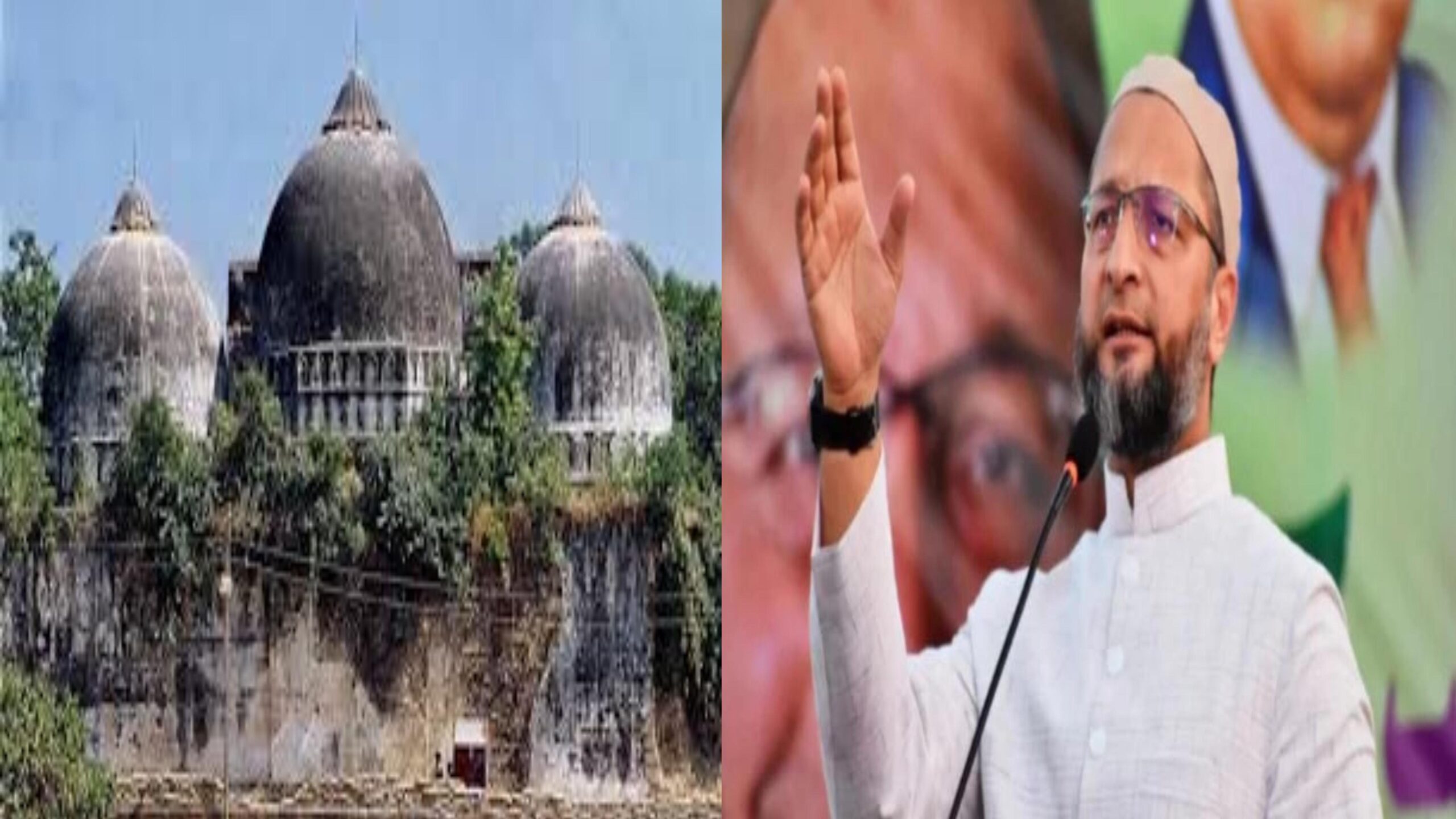In a recent statement, All India Majlis-e-Ittehadul Muslimeen (AIMIM) president Asaduddin Owaisi reiterated his perspective on the Ram Mandir Pran Pratishtha and asserted that the Babri Masjid was systematically taken away from the Muslims. Speaking to reporters in Karnataka’s Kalaburagi, Owaisi shared his historical viewpoint and expressed concerns about the current state of affairs for the Muslim community.
Historical Background: Owaisi began by delving into the historical context, emphasizing the centuries-old significance of the Babri Masjid. According to him, Muslims had been offering namaz in the Babri Masjid for 500 years. He pointed out a crucial period during the tenure of Congress’ GB Pant as the Chief Minister of Uttar Pradesh, when idols were placed inside the masjid. The collector of Ayodhya at the time, Nair, allegedly shut down the masjid and initiated worship activities, contributing to the complex history surrounding the site.
Owaisi asserted that the existence of the Ram Mandir was not established when the Vishva Hindu Parishad (VHP) was formed. He implied that the subsequent events leading to the demolition of the Babri Masjid in 1992 had far-reaching consequences for the Muslim community in India.
Systematic Takeover and Gandhi’s Silence: Claiming that the Babri Masjid was taken away systematically from Indian Muslims, Owaisi contended that the demolition in 1992 had profound implications for the community’s present circumstances. He argued that if the masjid had not been demolished, the current state of affairs for Muslims might have been different. Additionally, Owaisi brought attention to Mahatma Gandhi’s silence on the issue, stating that Gandhi never mentioned anything about the construction of the Ram Mandir.
Political Critique and Minority Representation: Taking a dig at political opposition, especially the Aam Aadmi Party (AAP) and its convenor Arvind Kejriwal, Owaisi accused leaders of pandering to the majority community while neglecting the concerns of minorities. He specifically highlighted Kejriwal’s announcement regarding the organization of ‘Sunderkand Paath’ and ‘Hanuman Chalisa’ every Tuesday in the lead-up to the Ram Temple consecration. According to Owaisi, such gestures were aimed at securing votes from the majority community, and he criticized the lack of attention to minority issues.
Owaisi’s Critique of AAP: Owaisi continued his criticism of the AAP, referring to them as “RSS ka chota recharge” (a small recharge of the Rashtriya Swayamsevak Sangh). He questioned the decision to organize ‘Sunderkand Paath’ in every assembly constituency of Delhi on the first Tuesday of every month, linking it to the upcoming inauguration of the Ram Mandir on January 22. The AIMIM chief accused the AAP of aligning with the majority sentiment for political gain.
Conclusion: Asaduddin Owaisi’s recent statements underscore the deep-rooted historical complexities surrounding the Babri Masjid and the subsequent construction of the Ram Mandir. His critique of the political landscape, particularly the AAP, reflects broader concerns about minority representation and the impact of religious sentiments on Indian politics. The ongoing discourse surrounding these issues highlights the need for a nuanced and inclusive approach to address the diverse perspectives within the Indian population.
AIMIM president Asaduddin Owaisi recently reiterated his stance on the Ram Mandir Pran Pratishtha, emphasizing the alleged systematic takeover of the Babri Masjid from the Muslims. Speaking in Karnataka’s Kalaburagi, Owaisi highlighted the historical significance of the Babri Masjid, where Muslims offered namaz for 500 years.

